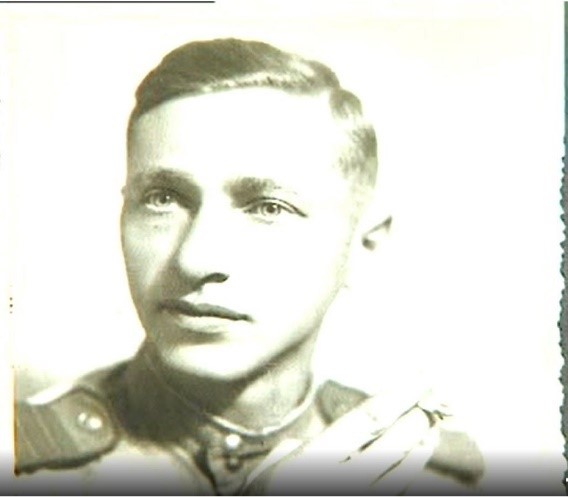Boris Berman was born in 1920 in the town of Mir, which was home to a famous yeshiva, as the youngest of six children. In 1921, Mir became part of independent Poland. Boris's father Khayim was a blacksmith, and Boris followed in his footsteps. Four of Boris's siblings immigrated to Argentina during the interwar period, while Boris and his married sister remained in Mir. He began to study to be a shoykhet (a kosher butcher). However, in September 1939 World War II began; Mir was occupied by the Soviets and incorporated into the Belorussian SSR. As a result, Boris had to resume working in the smithy.
On June 22, 1941, the Soviet-German War broke out, and Mir was occupied by German troops four days later. Boris Berman survived the first murder operation against the local Jews in November 1941, being spared thanks to his profession of blacksmith (however, the Germans refused to spare his father Khayim, because he was "too old"). A few days before the final massacre of August 13, 1942, Boris escaped from Mir. After a period of wandering, he managed to join a Soviet partisan unit. While serving there, he learned the skills of a machine gunner.
In July 1944, after the Red Army had liberated the area, Berman took part in the partisan parade in Minsk. Immediately after the parade, he was drafted into the Red Army. Following a brief course at a school for subaltern commanders, he was attached to the 1268th Rifle Regiment of the 385th Rifle Division, in the rank of sergeant. With this regiment, he was transferred to Poland, first to the area of Łomża, and later to the vicinity of Warsaw. There, he was wounded. Berman met V-E Day in Liegnitz, Silesia (present-day Legnica in Poland). In the course of the war, he was awarded the medal "For Battle Merit."
In 1946, Boris Berman was discharged from the army. Realizing that he had nowhere to return to, he followed one of his friends into the Donbass region in eastern Ukraine. Within days after settling in the town of Horlivka in the Donbass, he married a local Jewish woman. He went on to work as a warehouseman at the local railway station.

